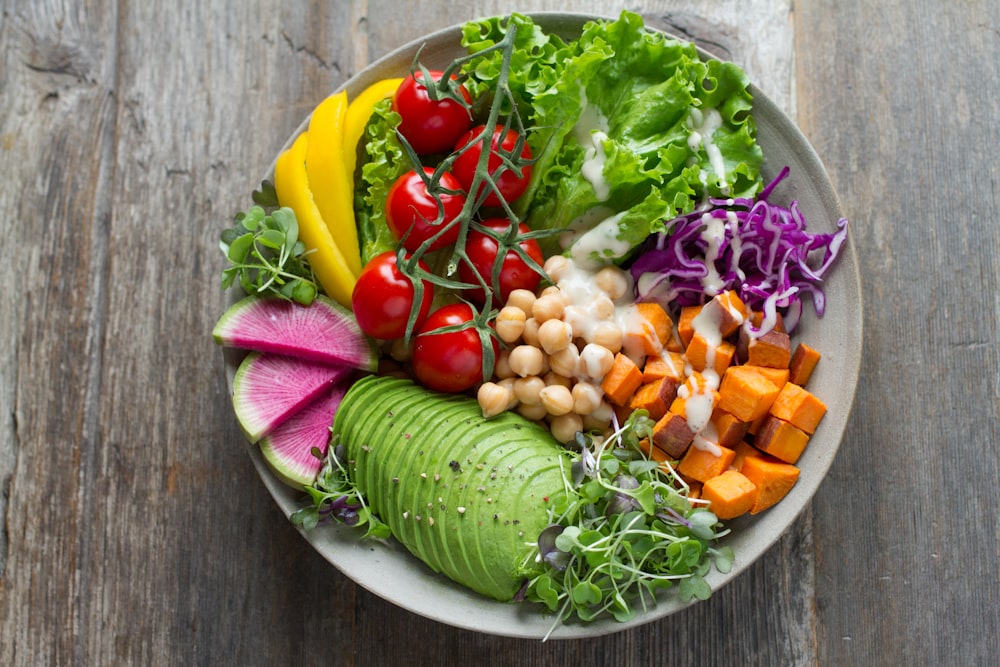How Your Gut Bacteria Influence Your Weight
The Microbiome-Weight Loss Connection
Emerging research has revealed a fascinating connection between the trillions of microorganisms living in your gut and your ability to lose weight. Your gut microbiome—the diverse community of bacteria, viruses, and fungi residing in your digestive tract—plays a crucial role in metabolism, appetite regulation, and even fat storage. Understanding this relationship could be the missing piece in your weight loss journey.

The gut microbiome contains trillions of microorganisms that influence your health
Did You Know?
Your gut contains approximately 100 trillion microorganisms—outnumbering your human cells by 10 to 1. These microbes collectively contain 150 times more genetic material than your human genome, significantly influencing how your body functions.
How Your Gut Microbiome Affects Your Weight
The composition of your gut bacteria influences weight through several mechanisms that scientists are just beginning to understand.
Beneficial Bacteria
Firmicutes, Bacteroidetes, Akkermansia
↳ Promote healthy metabolism
↳ Reduce inflammation
↳ Regulate appetite
Harmful Bacteria
Certain Firmicutes strains
↳ Extract more calories from food
↳ Promote fat storage
↳ Increase inflammation
Key Mechanisms of Weight Influence
- Energy Extraction: Some gut bacteria are more efficient at extracting calories from food, meaning two people can eat the same meal but absorb different amounts of energy
- Appetite Regulation: Gut bacteria produce hormones that influence hunger and satiety signals sent to your brain
- Inflammation Control: An unhealthy microbiome can promote systemic inflammation, which is linked to obesity and insulin resistance
- Fat Storage: Certain bacterial strains influence how and where your body stores fat
- Blood Sugar Regulation: The microbiome affects insulin sensitivity and blood glucose control

The gut-brain axis allows your microbiome to communicate with your brain about hunger and fullness
The Power of Probiotics and Prebiotics
Improving your gut microbiome involves two key strategies: adding beneficial bacteria (probiotics) and feeding them properly (prebiotics).
Probiotics vs. Prebiotics
| Probiotics | Prebiotics | |
|---|---|---|
| Definition | Live beneficial bacteria | Food for beneficial bacteria |
| Function | Add to microbial population | Nourish existing microbes |
| Sources | Yogurt, kefir, fermented foods | Garlic, onions, bananas, asparagus |
| Benefits | Directly improve gut diversity | Help good bacteria thrive |
Best Probiotic Strains for Weight Management
- Lactobacillus gasseri: Shown to reduce abdominal fat in several studies
- Lactobacillus rhamnosus: Helps maintain weight loss after dieting
- Bifidobacterium lactis: Improves metabolic markers and reduces inflammation
- Akkermansia muciniphila: Associated with leaner body types and better metabolic health
Microbiome-Friendly Foods for Weight Loss
What you eat dramatically influences your gut bacteria composition. Here are the best foods to support a weight-loss-friendly microbiome:

Fermented Foods
Yogurt, kefir, sauerkraut, kimchi, and kombucha contain natural probiotics that directly add beneficial bacteria to your gut.

High-Fiber Foods
Vegetables, fruits, legumes, and whole grains provide prebiotic fiber that feeds beneficial gut bacteria.

Polyphenol-Rich Foods
Berries, green tea, dark chocolate, and nuts contain compounds that promote growth of beneficial bacteria.

Diverse Plant Foods
Aim for 30 different plant foods weekly to maximize microbial diversity, which is linked to healthier weight.
Foods That Harm Your Microbiome
Just as some foods support healthy gut bacteria, others can damage your microbial ecosystem:
- Artificial Sweeteners: May disrupt microbial balance and glucose metabolism
- Highly Processed Foods: Lack fiber and contain additives that may harm beneficial bacteria
- Excessive Alcohol: Can disrupt the gut barrier and alter microbiome composition
- Saturated Fats: May promote growth of inflammation-producing bacteria
- Low-Fiber Diets: Starve beneficial bacteria, allowing harmful species to dominate

A diverse plant-based diet promotes a healthier microbiome composition
7-Day Action Plan to Improve Your Gut Health
Gut Health Optimization Plan
- Include fermented foods daily: Add a serving of yogurt, kefir, or sauerkraut to your daily diet
- Eat the rainbow: Consume at least 5 different colored plant foods each day
- Prioritize fiber: Aim for 25-35g of fiber daily from diverse sources
- Try intermittent fasting: Allow 12-14 hours between dinner and breakfast to support gut health
- Manage stress: Practice stress-reduction techniques since stress negatively impacts gut bacteria
- Exercise regularly: Physical activity increases microbial diversity
- Sleep well: Aim for 7-8 hours of quality sleep to support a healthy microbiome
How Long Until You See Changes?
Significant changes to your microbiome can occur within just a few days of dietary changes, but establishing a stable, healthy microbial community typically takes several weeks to months of consistent healthy eating.
Beyond Weight Loss: Other Benefits of a Healthy Microbiome
While weight management is a significant benefit, optimizing your gut health offers additional advantages:
- Improved Immunity: 70% of your immune system resides in your gut
- Better Mental Health: The gut-brain axis influences mood and cognitive function
- Enhanced Digestion: Reduced bloating, constipation, and other digestive issues
- Reduced Inflammation: Lower systemic inflammation throughout the body
- Healthier Skin: Improved complexion and reduction in inflammatory skin conditions

A healthy microbiome contributes to overall well-being beyond just weight management
A Holistic Approach to Weight Loss
While optimizing your gut microbiome is a powerful strategy, it works best as part of a comprehensive approach to weight management. Remember that no single factor determines your weight—diet, exercise, sleep, stress management, and genetics all play important roles. By nurturing your gut bacteria with the right foods and lifestyle habits, you're creating an internal environment that supports rather than fights your weight loss efforts.
The microbiome-weight connection represents an exciting frontier in nutritional science, offering new insights into why some people struggle with weight loss while others seem to maintain it effortlessly. As research continues to evolve, one thing is clear: taking care of your microscopic inhabitants is one of the most important investments you can make for your weight and overall health.
